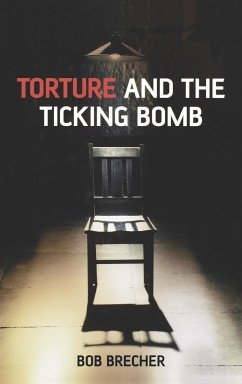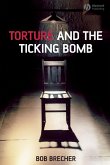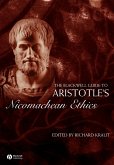Do you really think torture is acceptable in any circumstances? The controversial arguments of Harvard law professor Alan Dershowitz supporting the legalisation of torture in so-called "ticking bomb" scenarios represent the most sophisticated and visible of recent attempts to make torture an accepted weapon in the war on terror. States and other agents engage in torture, as both sides of the debate accept. According to Bob Brecher, it is precisely because the general public are taking the "new realism" of Dershowitz and others seriously that there is a pressing need to expose the fundamental flaws in their arguments, lest the peoples of democratic societies lose their moral compass and fail to be vigilant in holding their governments properly to account. This timely and passionate book is the first to address itself directly to the arguments for legalising the limited use of interrogational torture. Brecher confronts those arguments head-on, examining the efficacy of torture and drawing out the practical implications for policy as well as the ethical implications of these proposals for the kind of society we live in.
Hinweis: Dieser Artikel kann nur an eine deutsche Lieferadresse ausgeliefert werden.
Hinweis: Dieser Artikel kann nur an eine deutsche Lieferadresse ausgeliefert werden.
"Bob Brecher has accepted the challenge of the defenders oftorture in this excellent book." (Notre Dame PhilosophicalReviews, February 2009)
"(Dershowitz's) premise is subjected to a withering scrutiny inthis brilliant deconstruction by the moral philosopher Bob Brecher.In a comprehensive critique of the 'ticking bomb' hypothesis,Brecher exposes the moral and intellectual flaws in Dershowitz'sarguments and shows how easily such pragmatic rationalisations canopen the door to the creation of a 'tortuous society'. It's a taskthat Brecher accomplishes with grace, moral passion and unswervinglogic." (Red Pepper, March 2008)
"A splendid attack on the appalling idea of legalising torture."(Will Podmore)
"A salutary antidote to those who would waver on the issue[of torture]...Brecher opens up the wider utilitarianimplications that arise." (Planet Magazine)
"Brecher ... does not reflexively dismiss theadvocates of torture ... .He carefully cites the errors oftheir arguments, using logic, expert opinion, and moralreasoning." (PsycCritiques)"Brecher relentlessly deconstructs the most misleading hypotheticalof our time. His lively and valuable book shows that even 'noblecause' torture is always counterproductive."
-Geoffrey Robertson QC, Doughty StreetChambers
"Quite simply, this book is the most powerful and comprehensivechallenge available to a piece of intellectual fraud having widecommerce today - that under some hypothetical situation theinfliction of pain to break another's will is morallyjustifiable. The ticking bomb, in Brecher's analysis, is afantasy that hardly yields grounds sufficient for the employment ofinterrogational torture. Here the philosopher's role towardsthat fantasy is quite clear: debunk it!"
-Gabriel Palmer-Fernandez, Youngstown StateUniversity
"(Dershowitz's) premise is subjected to a withering scrutiny inthis brilliant deconstruction by the moral philosopher Bob Brecher.In a comprehensive critique of the 'ticking bomb' hypothesis,Brecher exposes the moral and intellectual flaws in Dershowitz'sarguments and shows how easily such pragmatic rationalisations canopen the door to the creation of a 'tortuous society'. It's a taskthat Brecher accomplishes with grace, moral passion and unswervinglogic." (Red Pepper, March 2008)
"A splendid attack on the appalling idea of legalising torture."(Will Podmore)
"A salutary antidote to those who would waver on the issue[of torture]...Brecher opens up the wider utilitarianimplications that arise." (Planet Magazine)
"Brecher ... does not reflexively dismiss theadvocates of torture ... .He carefully cites the errors oftheir arguments, using logic, expert opinion, and moralreasoning." (PsycCritiques)"Brecher relentlessly deconstructs the most misleading hypotheticalof our time. His lively and valuable book shows that even 'noblecause' torture is always counterproductive."
-Geoffrey Robertson QC, Doughty StreetChambers
"Quite simply, this book is the most powerful and comprehensivechallenge available to a piece of intellectual fraud having widecommerce today - that under some hypothetical situation theinfliction of pain to break another's will is morallyjustifiable. The ticking bomb, in Brecher's analysis, is afantasy that hardly yields grounds sufficient for the employment ofinterrogational torture. Here the philosopher's role towardsthat fantasy is quite clear: debunk it!"
-Gabriel Palmer-Fernandez, Youngstown StateUniversity









